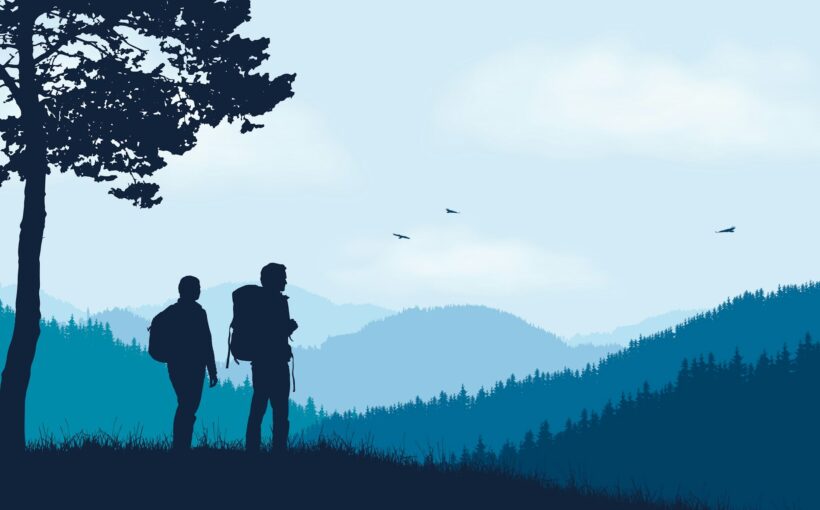
Coming soon after the release of the Netflix version of One Day, David Nicholls’ latest novel is another bitter-sweet homage to skewed romance. While the lovers in One Day are divided by class and aspiration, in You Are Here it’s loneliness and previous heartbreak that get in the way.
Marnie, a struggling freelance copywriter, is not at first impressed by Michael, a grumpy geography teacher. She is a Londoner, living alone in a Herne Hill apartment; he lives in York, in the house that is a shell without his recently departed wife Natasha. Their bossy mutual friend Cleo, a deputy head teacher, organises a walking holiday on which she hopes to set them up with suitable people. These potential liaisons fail to materialise, so Marnie and Michael are thrown together.
Nicholls has an unerring ability to tap into the emotional zeitgeist, the competitiveness that fuels class unease (Starter for Ten), midlife marriage uncertainty (Us) and in this case, the sense of estrangement from community that has followed the pandemic. While Michael has the school, with its physical routines, lockdown has never really ended for Marnie.
Working from home, she has no need for human interaction and sometimes feels that she is better off without it, “she no longer trusted her face to do the right thing, operating it manually, pulling levers, turning dials, for fear that she might laugh at someone’s tragedy or grimace at their joke”. So she cancels meet-ups, friendships falter. For his part, Michael fears that he is doomed to become increasingly solitary, and “he wondered if, after a certain age, men could ever really like each other. The window for friendship was always small, and narrowed with age”.
Both sense they are looking into a void, the means to connect evading them. Michael feels “cracked and vulnerable, like a cup with a glued-on handle”. He attempts to impose logic and rationality onto heartbreak, planning to walk from one side of northern England to the other in record time. His aim is to exchange loneliness for solitude.
Marnie agrees to join against her better judgment, recognising that she needs some kind of change. Initially, they seem mismatched, he is “like someone leading a doomed expedition”, while she, dressed in new outdoor wear, is well beyond her comfort zone.

The novel is told in short chapters, alternating between Marnie and Michael’s point of view. Their hopes, dreams, fears and recollections are conveyed with subtle humour, and the reader quickly sees that loneliness is not the only thing they have in common.
Both have a deep longing for a true romance, not just dating or a sexual encounter, but the sort of relationship that makes sense of the world. The mood is reminiscent of Jane Austen’s final novel Persuasion, with its weight of missed opportunities and lost time.
And the action plays out against a brilliantly evoked landscape: the fells and lakes of northern England. This is one of the great pleasures of the book, and the maps of the route that punctuate the text highlight the importance of the journey.
Michael, the committed geography teacher, has an affinity with the landscape, solid and evolving over millions of years. But things are changing rather faster for him, despite his dogged reluctance to move on. The ever-shifting weather and conditions seem to underline that, there are surprises at every turn.
He attempts some cold water swimming and the water is “silver-tinged and viscous, like gin from an ice box”. And nothing is quite what it seems “the peaks were all around them now, outlined sharply against each other, like old-fashioned theatre flats”. Nicholls doesn’t make it overly picturesque either, acknowledging “the brown noise of the A1”.
This is a novel that takes its time, as it must do if it is to keep faith with the over-arching structure of a muddy walking holiday and its attendant boring bed and breakfasts. But the story builds relentlessly to a heart-wrenching climax, perfectly orchestrated, keeping the reader guessing – and hoping – to the last.
![]()
Sally O’Reilly does not work for, consult, own shares in or receive funding from any company or organisation that would benefit from this article, and has disclosed no relevant affiliations beyond their academic appointment.



